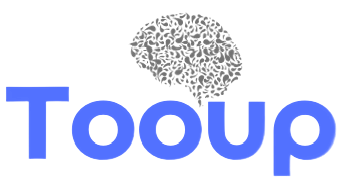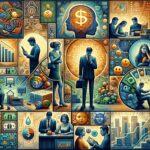Quantum supercomputers are no longer science fiction. These machines are already rewriting the rules of artificial intelligence in 2025. If you haven’t started paying attention yet, you’re already behind. A quantum supercomputer doesn’t just calculate—it revolutionizes how we solve the impossible.
Unlike classical computers, a quantum supercomputer leverages quantum bits (qubits) to process information in ways that defy traditional logic. It can explore millions of possible solutions simultaneously. This capability is reshaping AI training, optimization, and reasoning at unprecedented speed. With the rise of superconducting quantum computing, we’re seeing machines like Google’s Sycamore and IBM’s Osprey achieve what was once unimaginable—quantum supremacy.
The link between quantum supercomputers and AI is growing stronger by the day. Startups like Multiverse Computing are proving that quantum-enhanced algorithms can outperform even the most advanced classical systems in complex data modeling. This synergy is not just theoretical—it’s happening in finance, health, cybersecurity, and logistics.
Most importantly, the emergence of national powerhouses like China’s Zuchongzhi 2.1 marks the beginning of a new technological arms race. The Chinese quantum computer program isn’t just about scientific prestige—it’s about disruption. And AI is at the heart of this strategic shift.
So why should you care?
Because everything we know about AI is about to change. Whether you’re a startup, an investor, a student, or just curious—you need to understand what’s coming. The quantum supercomputer wave is not only reshaping industries. It’s reshaping human potential.
Bold claims? Absolutely. But the data doesn’t lie.
Stay with us as we dive into the five biggest disruptions already unfolding. And when you’re done reading, we want your voice too—join the conversation on our Facebook and Instagram.

What Is a Quantum Supercomputer and Why It Matters Now
A quantum supercomputer isn’t just a faster machine. It’s a fundamental shift in how computation works. Traditional computers use bits—1s and 0s—to process data. In contrast, quantum supercomputers use qubits, which can exist in multiple states at once. This allows them to perform complex calculations exponentially faster than classical systems.
One of the most promising technologies powering these machines is superconducting quantum computing. Companies like IBM, Google, and Rigetti have developed quantum processors that use superconducting circuits cooled to near absolute zero. These environments allow qubits to maintain coherence, enabling accurate and scalable quantum operations.
Google’s Sycamore processor, for instance, achieved quantum supremacy in 2019. That moment proved a quantum computer could solve a problem no classical machine could handle in reasonable time. Since then, IBM’s roadmap has accelerated. In 2023, it unveiled Condor, a 1,121-qubit processor—bringing us closer to fault-tolerant, error-corrected quantum computing.
But why does this matter now?
AI systems today face enormous computational challenges. Training a large language model or a deep neural network requires weeks of work and massive energy costs. A quantum supercomputer can reduce this time to hours—or even minutes. It doesn’t just speed up training. It redefines the entire pipeline, from feature selection to model inference.
The applications are mind-blowing. Quantum-enhanced AI could revolutionize drug discovery, financial forecasting, and even climate modeling. And the race is heating up fast. In a world where data is power, quantum computing offers a new kind of weapon.
If your business relies on big data, this matters. If you use AI for decision-making, this matters. And if you’re planning for the future, understanding quantum supercomputers is no longer optional—it’s essential.
Read on to see how they’re powering AI’s next giant leap.
How Quantum Supercomputers Are Powering AI’s Next Leap
Artificial intelligence is evolving. But it’s the quantum supercomputer that’s unlocking its true potential. By exploiting quantum mechanics, these machines allow AI models to process information in ways that classical systems simply can’t match.
Take optimization, for example. Training AI involves solving massive optimization problems—millions of variables and parameters. A quantum supercomputer can evaluate multiple combinations at once, finding ideal solutions faster and more accurately. This isn’t just theory. Companies like Multiverse Computing already apply quantum algorithms in finance, energy, and manufacturing to deliver better results than classical models.
More than that, quantum computers can handle probabilistic models and nonlinear systems with incredible precision. That’s why researchers are integrating multiverse computing techniques into AI workflows. These methods simulate parallel possibilities—useful for decision-making systems, autonomous vehicles, and robotics.
Quantum processors can also massively accelerate AI inference. Once a model is trained, it needs to make predictions. Classical inference can be slow and energy-hungry. Quantum systems, especially those using superconducting quantum computing, make this step lightning-fast—critical for real-time applications.
Let’s look at a real case: drug discovery. AI models traditionally require thousands of simulations. But quantum-enhanced models, running on D-Wave or IonQ systems, drastically reduce that load. This saves time, money, and potentially lives.
Still think this is years away?
Think again. IBM, Xanadu, and Google are working with developers and startups now. Their platforms support hybrid AI-quantum models that you can test today. The quantum supercomputer is no longer a distant dream. It’s a working tool for those who dare to innovate.
Next, we’ll explore how China is changing the game—and why that matters to everyone.
The Chinese Quantum Computer Race: Global Impact on Innovation
China isn’t watching the quantum supercomputer revolution from the sidelines. It’s leading it. With groundbreaking machines like Jiuzhang 2.0 and Zuchongzhi 2.1, China has become a dominant force in the global quantum arms race.
These aren’t just lab projects. In 2021, Zuchongzhi performed calculations a million times faster than the most powerful supercomputers. China’s quantum systems rely on photonic circuits, a different approach from superconducting quantum computing used in the West. This diversity strengthens their edge.
Why should this concern the world?
Because quantum computing isn’t only about speed. It’s about control over strategic technologies. AI, cybersecurity, logistics, and encryption—all become vulnerable or superior depending on who masters the quantum advantage first. The chinese quantum computer effort isn’t just technological—it’s geopolitical.
Consider the national strategies. China’s “Next Generation AI Development Plan” aims to make the country the global AI leader by 2030. Quantum computing is a pillar of that strategy. The government is investing billions into research centers like the National Laboratory for Quantum Information Sciences in Hefei.
This creates a new technological dynamic. Western companies collaborate on open-source tools. China integrates quantum hardware, AI models, and state-backed infrastructure. The result? A centralized, fast-moving innovation ecosystem that rivals anything the US or EU can build.
The implications are huge. Quantum-enhanced AI systems in China could optimize supply chains, predict economic trends, and drive autonomous military platforms. We’re not just watching scientific progress—we’re witnessing a power shift.
If your organization works with data, AI, or global strategy, you need to watch this space. The quantum supercomputer race is no longer about curiosity. It’s about who defines the future—and who gets left behind.
Real-World Disruptions You’ll See by the End of 2025
The impact of the quantum supercomputer is no longer theoretical. Real-world disruptions are already unfolding—and 2025 will be the tipping point. From medicine to finance, industries are shifting fast.
In healthcare, quantum-enhanced AI is transforming drug discovery. Traditional simulations can take months. Quantum algorithms—especially those from platforms like IBM Quantum—compress that to days. Scientists now model complex molecular interactions with near-perfect precision. This means faster vaccines, smarter treatments, and fewer clinical trial failures.
In cybersecurity, quantum systems break traditional encryption. That’s a threat—but also an opportunity. New protocols based on post-quantum cryptography are emerging to counter this risk. Governments and companies must act fast or face serious data exposure.
Energy is another frontier. AI models supported by multiverse computing optimize power grids in real time. By simulating parallel outcomes, they reduce energy waste, balance loads, and cut costs. Spain’s national power operator, for example, is already testing this tech.
In finance, quantum models enhance fraud detection, portfolio analysis, and algorithmic trading. Institutions using quantum supercomputers gain predictive insights others simply can’t match. This shifts competitive advantage and raises questions about fairness and transparency.
Even in transportation, quantum algorithms help cities reduce traffic, airlines optimize routes, and supply chains improve efficiency. Tools powered by superconducting quantum computing process millions of variables simultaneously—something classical AI struggles to do.
By the end of 2025, we’ll feel these changes in daily life. Faster medical breakthroughs. Safer financial systems. Smarter cities. More responsive energy grids.
The tech is here. The disruption is real. And it’s only accelerating.
In the next section, we’ll ask the big question: can we control what we’re creating?
Ethics, Risks and The Quantum Superpower Dilemma
The rise of the quantum supercomputer brings incredible promise. But it also raises urgent ethical and geopolitical concerns. Who controls this power? And at what cost?
First, let’s talk about AI autonomy. When AI models become faster and smarter thanks to quantum acceleration, they also become harder to monitor. Quantum-enhanced systems can make decisions at speeds no human can follow. That raises red flags around transparency, accountability, and bias.
Next, consider quantum hacking. A single quantum system could crack today’s encryption standards in seconds. That puts governments, banks, hospitals—and your personal data—at risk. Experts urge organizations to adopt post-quantum security solutions before it’s too late. The NSA, for instance, is already working on new encryption standards.
Now add geopolitics. The chinese quantum computer program is highly centralized. If one country achieves full quantum-AI integration before others, it could dominate information warfare, finance, and technological leadership. This creates an asymmetric superpower—a risk the West can’t ignore.
But there’s another side. Tools like multiverse computing can be used for good. We can solve climate change models, simulate global food systems, and predict pandemics before they happen. The ethical dilemma isn’t just about danger—it’s about responsibility. Will we use this power wisely?
We must also ask: who gets access? Will quantum computing be open and fair, or locked behind paywalls and patents? As with AI, control over quantum tech could concentrate wealth and knowledge in the hands of a few.
So yes—quantum supercomputers can change the world. But we must ask tough questions, now. Before the line between innovation and control disappears.
Are You Ready to Ride the Quantum AI Storm?
We’ve explored how the quantum supercomputer is rewriting the rules of artificial intelligence. From explosive advances in medicine to disruptive shifts in global power, the transformation is happening right now—and it’s not slowing down.
But here’s the real question: Are you ready?
This is more than just faster machines or smarter code. It’s about your work, your data, your future. In 2025, quantum AI doesn’t knock gently—it kicks the door wide open.
Excitement might be your first reaction. Or maybe you feel skeptical, unsure of what all this really means. You might even feel a flicker of fear—and that’s okay. That means you’re paying attention. That means you’re awake.
So tell us what you think.
🔥 Are quantum supercomputers a miracle or a monster?
🌍 Will this tech solve problems—or create bigger ones?
🚀 Are we building a better world—or a smarter weapon?
👉 Go to our Facebook page or Instagram, drop a comment, hit follow, and join the debate.
Your opinion matters. Your voice shapes the conversation.
This is not just a tech revolution—it’s a human one.
Let’s ride the quantum AI storm together. And let’s make some noise.



